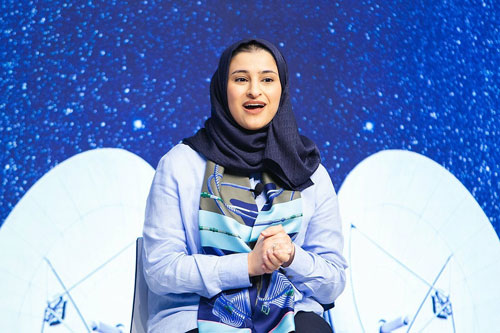UAE
Along with India and EU, the United Arab Emirates (UAE) recently became successful in inserting a spacecraft into orbit around Mars on the first try. The mission was announced in 2014 and the Hope probe succeeded in entering the planet’s orbit on February 9.
Leading the science mission as deputy project manager is Sarah bint Yousif Al Amiri, a computer engineer and also the country’s first Minister of State for Advanced Sciences. Al Amiri, 33, is also the chairperson of UAE’s space agency Mohammed Bin Rashid Space Centre, which developed the Hope orbiter (or Al Amal), in conjunction with University of Colorado Boulder, University of California-Berkeley and Arizona State University.
The Iranian-born Al Amiri is one of the youngest ministers worldwide and is also the youngest to lead a space agency.
After graduating with a BSc in Computer Engineering in 2008 from the American University in Sharjah, Al Amiri worked as a programmes engineer at the Emirates Institution for Advanced Science and Technology (EIAST) for two years.
At EIAST, she worked on both the DubaiSat-1 and DubaiSat-2, the country’s first two satellites. She was also a part of the team that developed the KhalifaSat or DubaiSat-3, and worked as the director of the Advanced Aeronautical Systems division.
She subsequently obtained an M.Sc. in computer engineering in 2014 from the same university, while also simultaneously working as the head of Space Science at Mohammed Bin Rashid Space Centre, where she set up the research and development unit and functioned as its director.
As a part of the organisation, she worked towards the country’s goal of developing a “knowledge-based economy”. The goal includes plans to build a human settlement on Mars by 2117. To facilitate training and research, the country plans to build a ‘science city’ in the deserts of Dubai to simulate Martian conditions.
In 2014, Al Amiri became the programme manager for advanced aerial systems in the country’s space centre. She was responsible for putting together the engineering team for the space agency. She was then appointed the head of the Emirates Science Council in 2016.—Agencies










